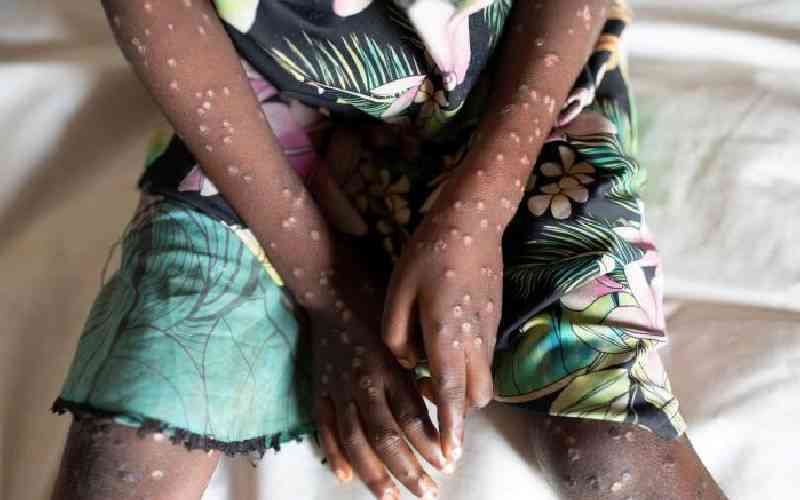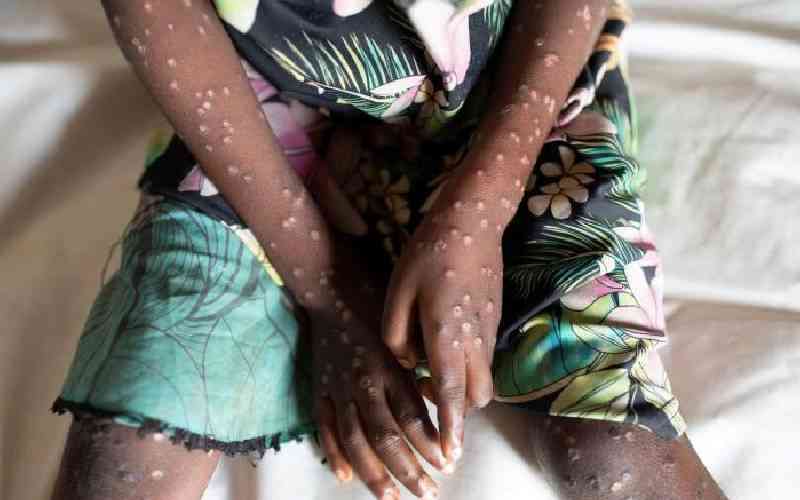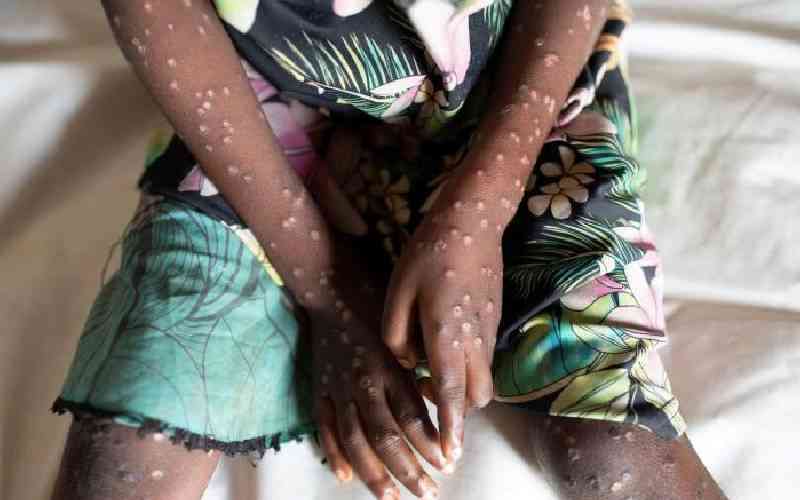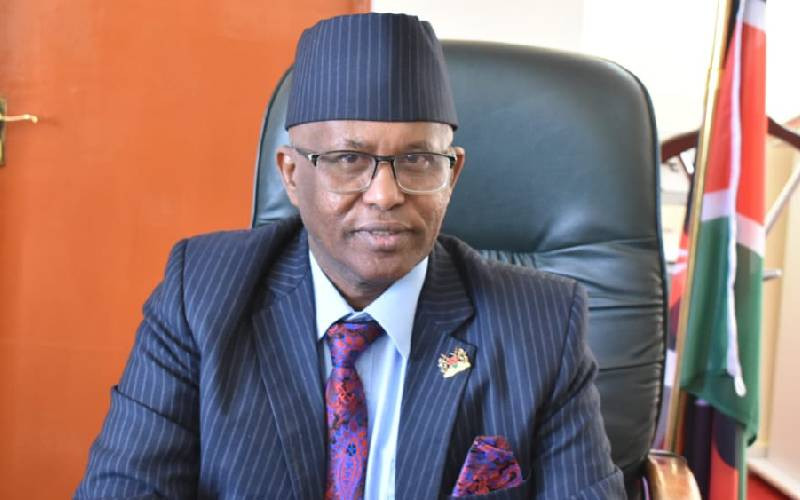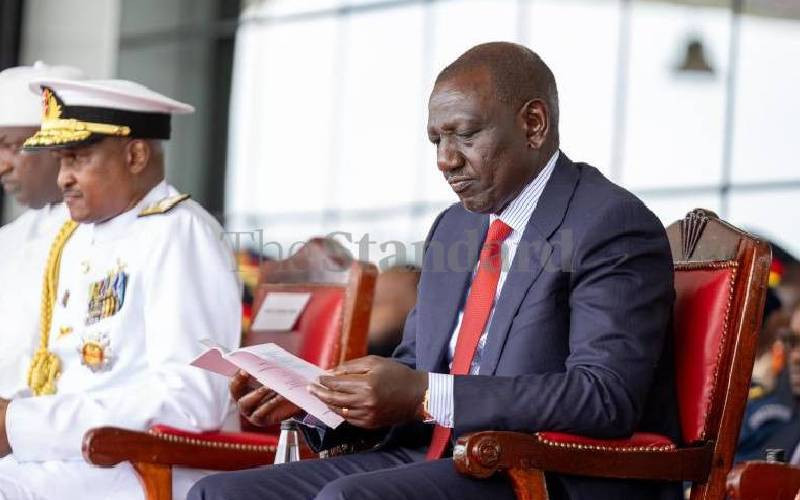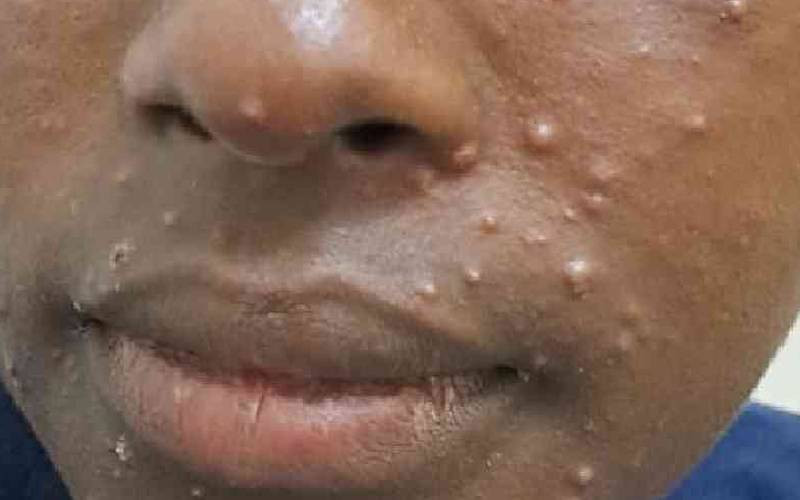
Lessons learned from the Covid pandemic have left the world in a much better position to tackle the current mpox epidemic raging in Africa, according to the Gavi vaccine alliance.
The Covid catastrophe brought with it "important learnings and those learnings were drawn upon", said Gavi chief Sania Nishtar.
"Those learnings cascaded into specific instruments that are now coming into play" against mpox, the former Pakistani health minister told AFP in an interview this week.
When Covid emerged in early 2020 and quickly began its deadly rampage around the globe, it revealed how completely unprepared the international community was to face such a global health crisis.
It also shone a light on glaring global vaccine inequity, as wealthy countries snapped up most doses, leaving Africa far behind.
Countries are still struggling to agree on a new pandemic treaty that could ensure the world is better prepared next time.
But Gavi, which works to swell vaccine access in poorer countries, has not waited for a global agreement to put in place measures to better position it to respond to emergencies, Nishtar said.
The organisation in June set up a $500-million First Response Fund, designed to make cash rapidly available for vaccines during health emergencies.
'Responsive'
"The learnings of Covid were that when the emergency hits, there wasn't money available," said Nishtar, who became the first woman to lead Gavi when she took the reins in March.
Gavi announced its first use of the fund on Wednesday, as it entered a deal with Danish drugmaker Bavarian Nordic to secure 500,000 doses of its MVA-BN mpox vaccine for use in African countries hit by the epidemic.
"We're drawing up to $50 million from the First Response Fund," Nishtar said, adding that the money would partially be used to cover the cost of the doses, and partially for overhead costs including for delivery and logistics.
"We're doing all we can to make sure that we can be as responsive and as quick as possible," she said.
Mpox, previously known as monkeypox, is caused by a virus transmitted to humans by infected animals but can also be passed from human to human through close physical contact.
Stay informed. Subscribe to our newsletter
It causes fever, muscular aches and large boil-like skin lesions, and can be deadly in some cases.
The World Health Organization declared an international emergency over mpox last month, concerned by the surge in cases of the new Clade 1b strain in the Democratic Republic of Congo, that spread to nearby countries.
Between January and the end of August, DRC had recorded nearly 22,000 cases and more than 700 deaths linked to the virus.
'Better scenario'
The Africa Centres for Disease Control and Prevention has called for the continent to obtain 10 million doses. So far, it says just 3.6 million vaccines have been secured for Africa.
Last week, the World Health Organization gave the nod to the MVA-BN jab, for the first time pre-qualifying an mpox vaccine, paving the way for speeding up procurement by international organisations.
Nishtar said Gavi was "very glad to have moved very quickly".
She pointed out that just 35 days had passed between WHO's emergency declaration and Gavi's advance purchase deal for the MVA-BN doses, which "is as fast as you can get".
Gavi also decided in June to build a global stockpile of mpox vaccines, starting in 2026, as it has done for vaccines against cholera, Ebola, meningitis and yellow fever.
The organisation has also launched a vaccine production "accelerator" for Africa, capable of dishing out up to $1.2 billion over 10 years to speed up the expansion of vaccine manufacturing capabilities on the continent.
"All in all, we're in a much better scenario than we were with Covid," Nishtar said.
 The Standard Group Plc is a
multi-media organization with investments in media platforms spanning newspaper
print operations, television, radio broadcasting, digital and online services. The
Standard Group is recognized as a leading multi-media house in Kenya with a key
influence in matters of national and international interest.
The Standard Group Plc is a
multi-media organization with investments in media platforms spanning newspaper
print operations, television, radio broadcasting, digital and online services. The
Standard Group is recognized as a leading multi-media house in Kenya with a key
influence in matters of national and international interest.
 The Standard Group Plc is a
multi-media organization with investments in media platforms spanning newspaper
print operations, television, radio broadcasting, digital and online services. The
Standard Group is recognized as a leading multi-media house in Kenya with a key
influence in matters of national and international interest.
The Standard Group Plc is a
multi-media organization with investments in media platforms spanning newspaper
print operations, television, radio broadcasting, digital and online services. The
Standard Group is recognized as a leading multi-media house in Kenya with a key
influence in matters of national and international interest.


